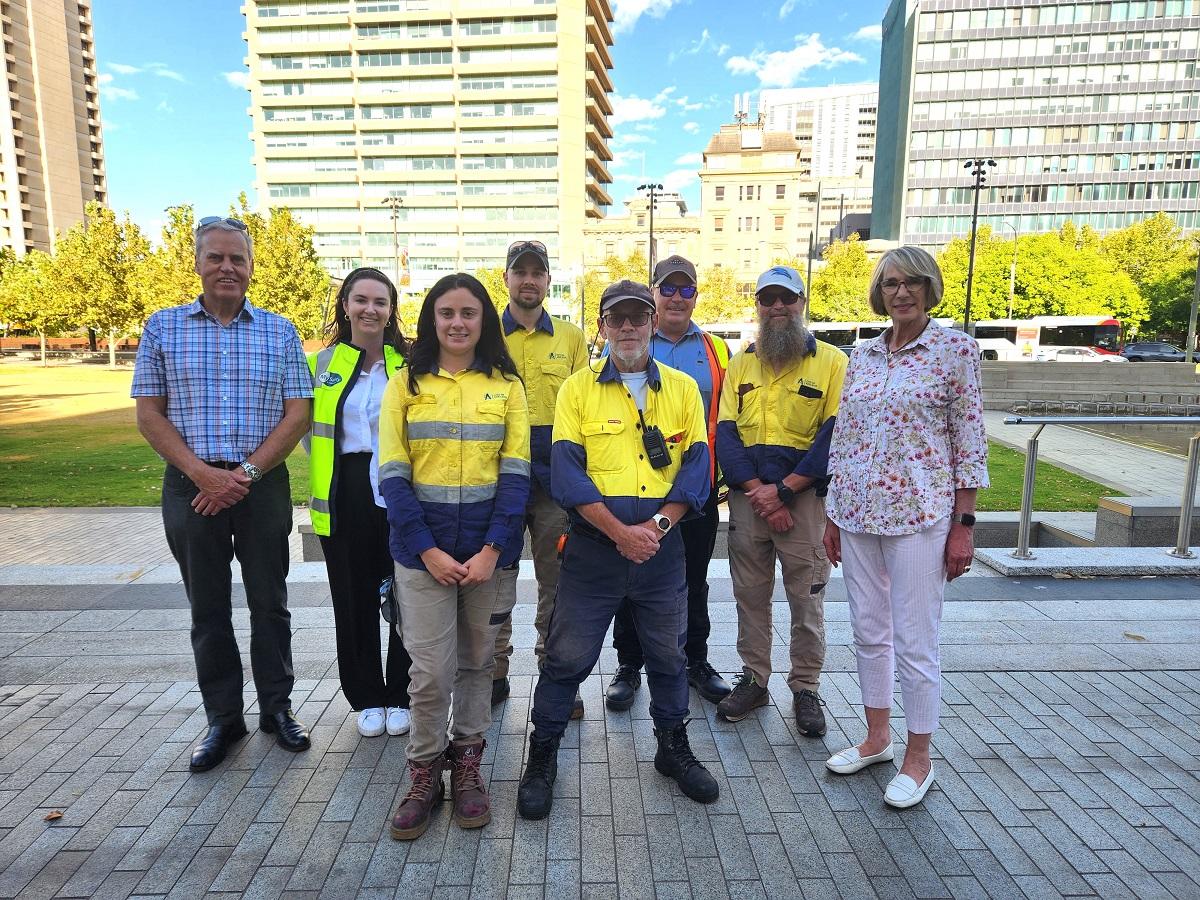
Associate Professor Paul Rothmore (pictured left) is working with the City of Adelaide, trialling new approaches to help further protect outdoor workers from the effects of heat.
As South Australians sweat through warmer weather, University of Adelaide researchers are trialling new approaches to help further protect outdoor workers from the potentially dangerous effects of heat.
A group of outdoor workers from the City of Adelaide are participating in the trial, which involves using heat stress monitoring devices to assess environmental conditions and impacts on health.
“The hot, dry conditions South Australia endures over the warmer months can pose a challenge to the health of outdoor workers, including council workers,” said Associate Professor Paul Rothmore from the University of Adelaide’s School of Allied Health Science and Practice, who is leading the trial.
“We are trialling heat stress devices with GPS tracking and applying them to the council’s workforce to determine the type of work that can be safely undertaken around the city.”
The portable monitoring devices are either handheld or worn on a belt and provide on-the-spot heat stress readings by taking into account factors such as heart rate, solar intensity, air temperature and relative humidity. This information will be combined with the workers’ perceptions of the climate at the time.
The results will then be used to develop a decision-making tool to establish parameters for outdoor work, including the types of activities that are to be performed and their duration.
“There are areas of the city where even in 30-degree heat, the microclimate can make it feel like a hot house for outdoor workers,” said Associate Professor Rothmore.
“With rising temperatures, businesses will need to look at adjusting work practices to suit the conditions and this new risk assessment tool could help with that.”
“With rising temperatures, businesses will need to look at adjusting work practices to suit the conditions and this new risk assessment tool could help with that.” Associate Professor Paul Rothmore, School of Allied Health Science and Practice, University of Adelaide.
The team has also been testing out a three-stage intervention tool which incorporates data from weather forecasting, heat zone maps and workload levels to assess the type of activity that can be carried out safely at city locations.
“Heat exposure can lead to heat-related injuries and illnesses and the risk to workers will only increase as Adelaide’s climate grows warmer,” said Associate Professor Rothmore.
The City of Adelaide approached the researchers to be part of this trial, which began at the start of this month.
“Extreme heat events are becoming more common and can put the health of people at risk, including our outdoor workers such as our horticulture team,” said Lord Mayor Jane Lomax-Smith.
“At the City of Adelaide, we are preparing and responding to changing climate by putting the health and welfare of our staff first. We are working with the University of Adelaide and are using the latest research to help us manage the challenges that come with climate change.
“City of Adelaide is involved with our universities and embraces every opportunity to learn from or undertake cutting-edge research.”
If proven effective, the risk assessment tool could have wider applications for outdoor industries such as mining, agriculture and construction.








